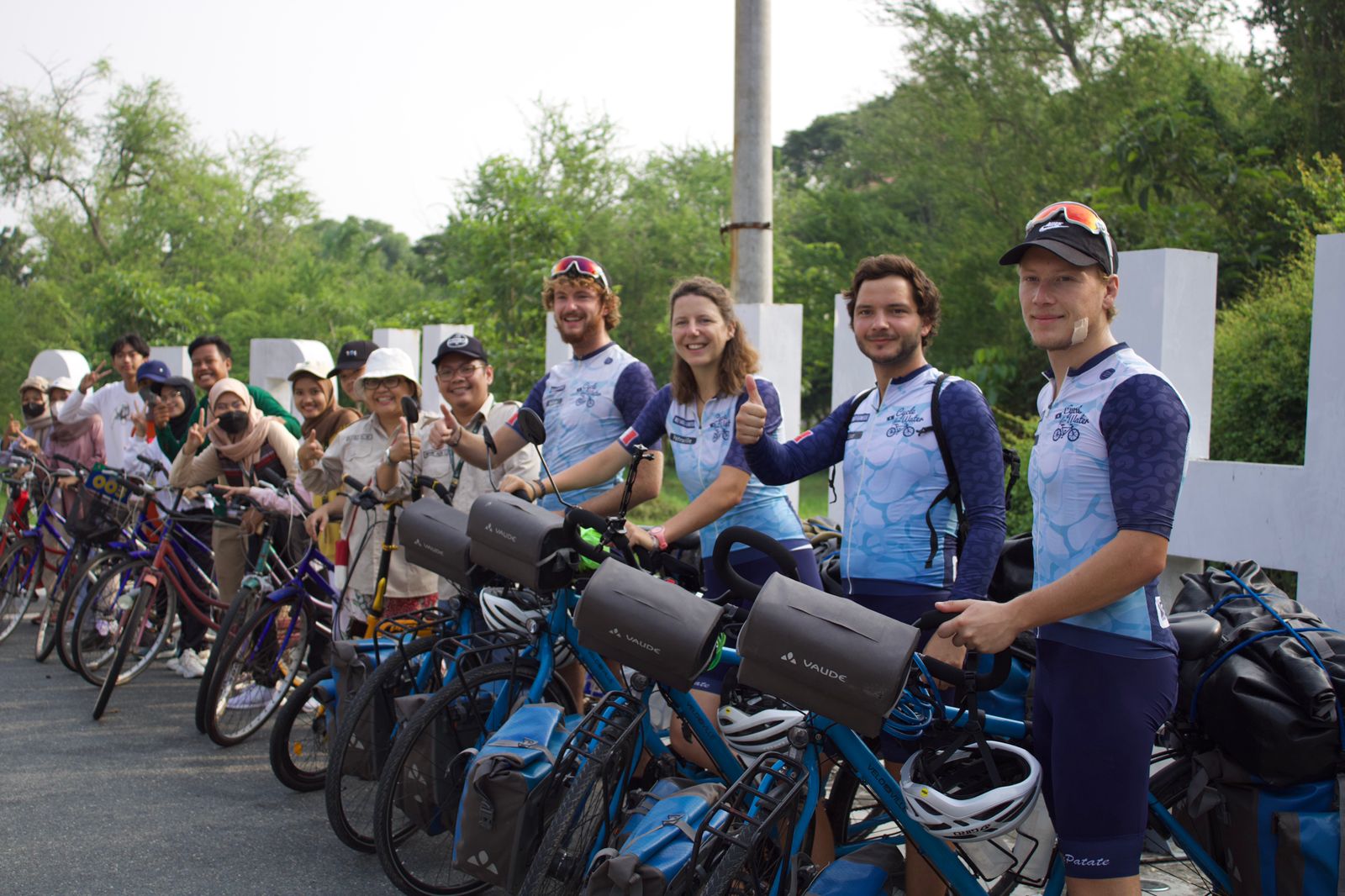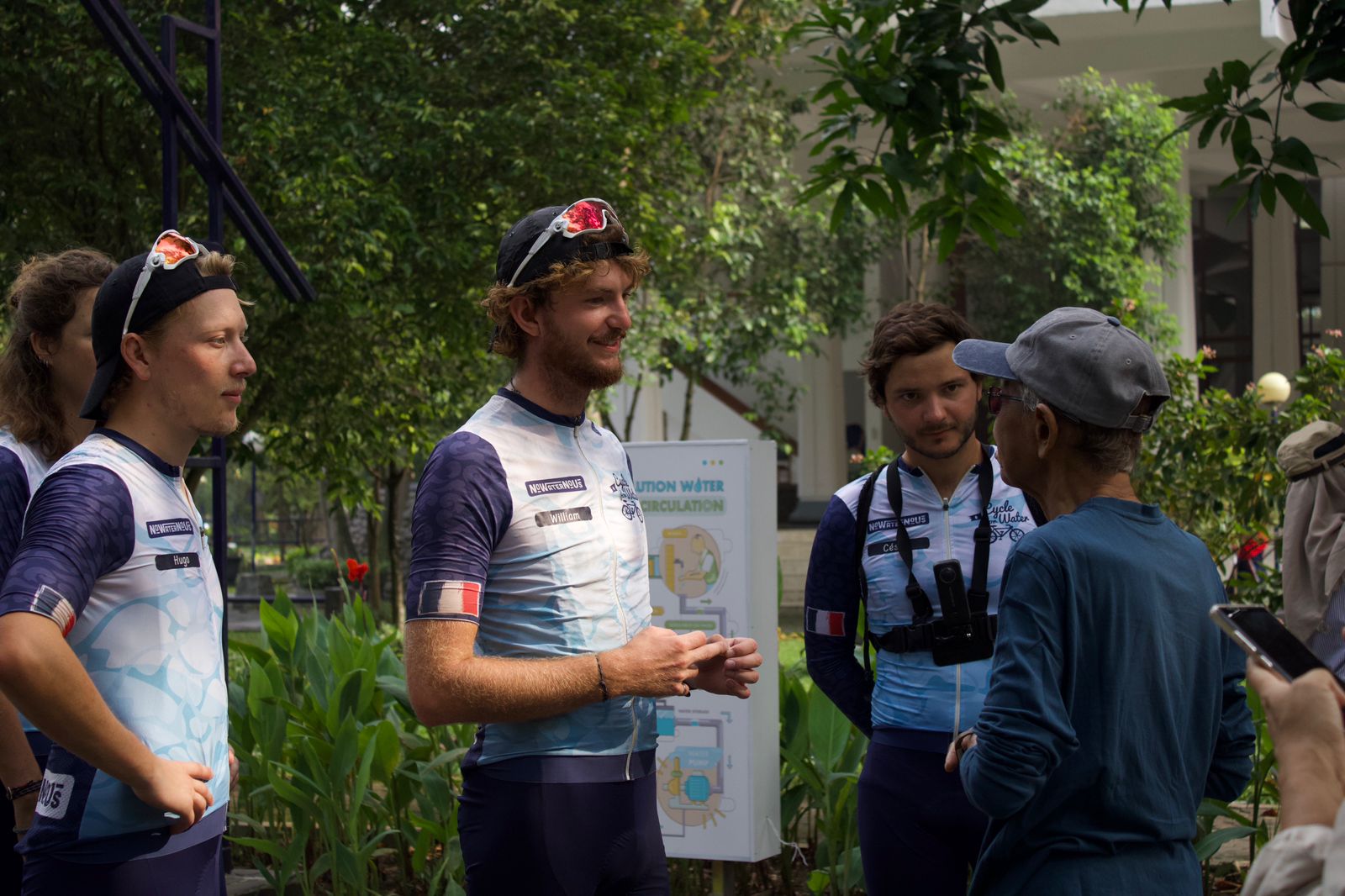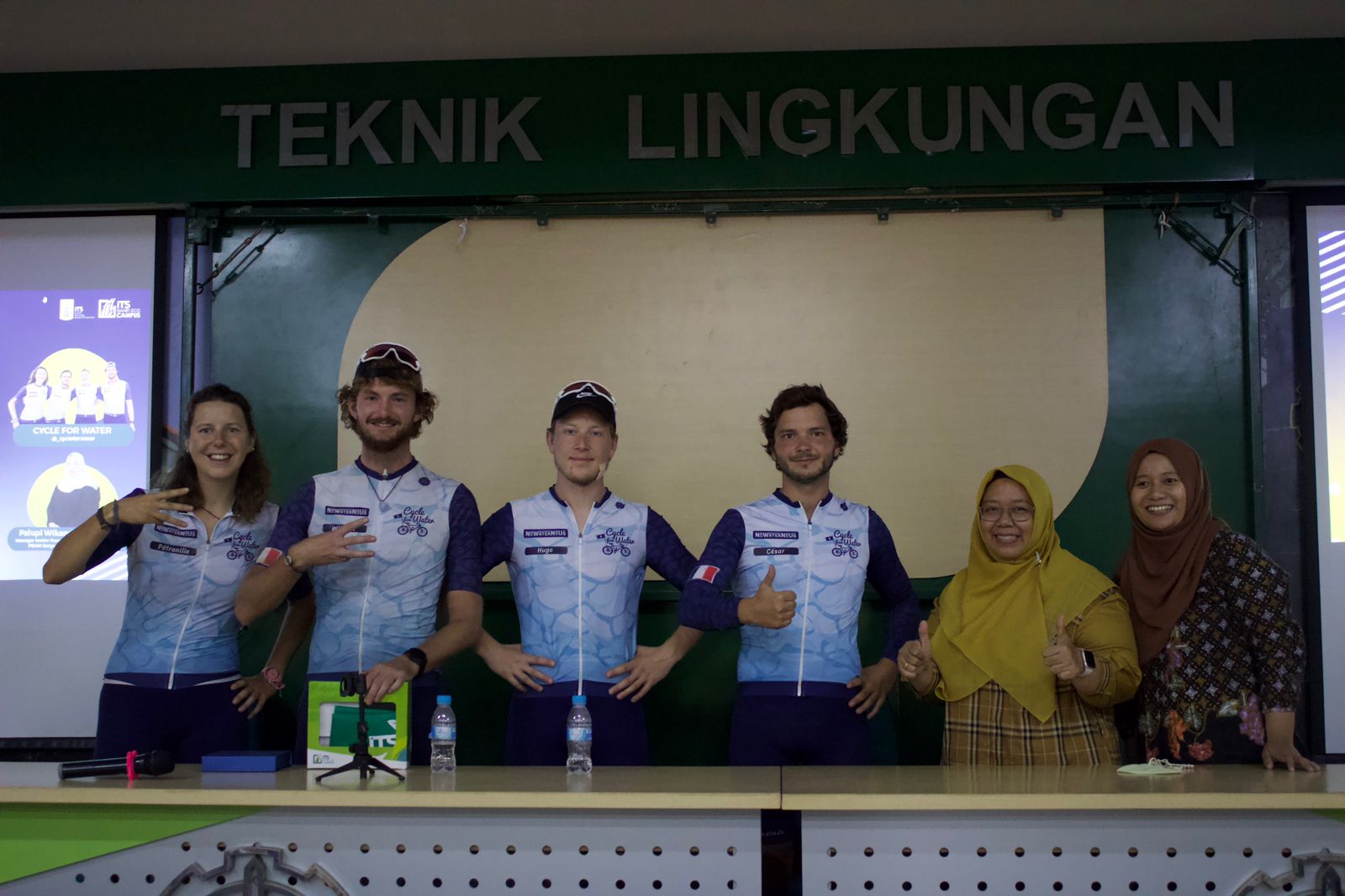Cycle for Water to Raise Awareness on Water Use

Photo with ITS Eco Campus and the Cycle For Water community when going to cycle to the ITS Manarul Ilmi Mosque
ITS Campus, ITS News – Smart Eco Campus Institut Teknologi Sepuluh Nopember (ITS) presents Ecotalk Series 6 entitled Environment and Water Awareness, Friday (24/3). The event commenced with a cycling activity in collaboration with the Cycle For Water community from the ITS roundabout to the ITS Manarul Ilmi Mosque stop point.
The Manager of the ITS Smart Eco Campus Social Engineering Program, Ars Iwan Adi Indrawan ST M.Ars explained this activity was to demonstrate the Ablution Water Circulation innovation, which ITS had implemented as a form of concern for the campus environment.
ITS has been implementing this innovative practice for nearly a decade, in which wastewater from ablution is utilized and treated repeatedly until it reaches a sufficiently clean state for watering plants.
“With this innovation, the ITS Manarul Ilmi Mosque has effectively utilized millions of liters of water, preventing it from going to waste,” said the lecturer at the Department of Architecture.
Iwan revealed that the main purpose of holding this activity was to raise awareness and develop a sense of responsibility for the proper use of water.
“Hopefully, this event can have a positive impact and make people pay more attention to the environment and be wise in using water,” he concluded.

The Cycle For Water community with Mr. Ashar as the person in charge of ITS Manarul Ilmi Mosque when explaining about the Ablution Water Circulation innovation
Cycle for Water community representative, Petronille Sartorio recounts the journey with his teammates. When he was in Flores, access to drinking water was very difficult to find. The springs are located very far from settlements and the water you get has to be boiled to be drinkable. “This is one form of inequality in access to clean water that I see,” said Petro.
Petro also shared his experience when he and his team visited New Zealand. They see how clean water and sanitation are well maintained and easily accessed. “New Zealand implemented the three water services program, and I think this innovation can also be applied in Indonesia,” he said.
The woman from France explained that the intended three water services innovation aims to ensure that all citizens can enjoy safe, affordable, and sustainable drinking water, wastewater, as well as rainwater services. “This is in line with our main goal of protecting water and the environment,” added Petro.
Given the current circumstances, Petro highlighted the pressing issue of unequal access to clean water and proper sanitation. This concern motivated the Cycle For Water community to launch campaigns aimed at raising awareness about the importance of access to clean water, which they promoted by embarking on a cycling expedition across multiple countries. “No water, no us,” Petro concluded, employing the group’s self-coined slogan.

(from left) Cycle For Water Community and Palupi Wikandari ST MSES as presenters of Ecotalk #6 entitled Environment and Water Awareness
Senior Manager of Planning and Development for the Regional Drinking Water Company (PDAM) Surya Sembada City of Surabaya, Palupi Wikandari ST MSES explained that clean water is a part of human rights. Because water is the most essential thing that underlies human life, access to clean water and good sanitation must be fulfilled in quantity and quality.
On the other hand, many people still find it difficult to access clean water and get good sanitation. In Surabaya, residents have to pay to access clean water, starting from the cost of installing the canal to the monthly rate. “This is our focus point so that all groups can enjoy clean water,” he said.
Responding to these problems, one of the efforts that have been made is establishing the Master Meters program. The program aims to improve PDAM water access in Surabaya, especially for Low-Income Communities (MBR) who technically and administratively cannot be served by the Surabaya PDAM.
Palupi remarked that in Surabaya, there is a lack of suitable alternative water sources, both in terms of quality and quantity, making the water provided by PDAM the primary source. Currently, PDAM has successfully provided clean water access to 99.9% of Surabaya’s regions.
“For this achievement, it is hoped that in the future all people without exception, will be able to access clean water easily,” he concluded. (ITS Public Relation)
Reporter : Nayla Maisun Nur Aqila
Related News
-
ITS Develops Four‑Legged Dog Robot with Sensors and Navigation
ITS Campus, ITS News – Institut Teknologi Sepuluh Nopember (ITS) is further solidifying its role in robotic technology
March 24, 2023 15:03 -
ITS Mathematics Alumnus Creates EEG-Based Brain Research Technology
ITS Campus, ITS News — One of the graduates of the Institut Teknologi Sepuluh Nopember (ITS) has succeeded in
March 24, 2023 15:03 -
ITS Promotes FAST-D Scholarship, Unggul, and Global Excellence Scholarship
ITS Campus, ITS News – Institut Teknologi Sepuluh Nopember (ITS) always shows its commitment in supporting students to develop their best
March 24, 2023 15:03 -
Supporting the Implementation of SPMB 2025, ITS Develops the SENOPATI Platform
ITS Campus, ITS News – Showing its contribution in the field of education, Institut Teknologi Sepuluh Nopember (ITS) has redeveloped a platform
March 24, 2023 15:03
